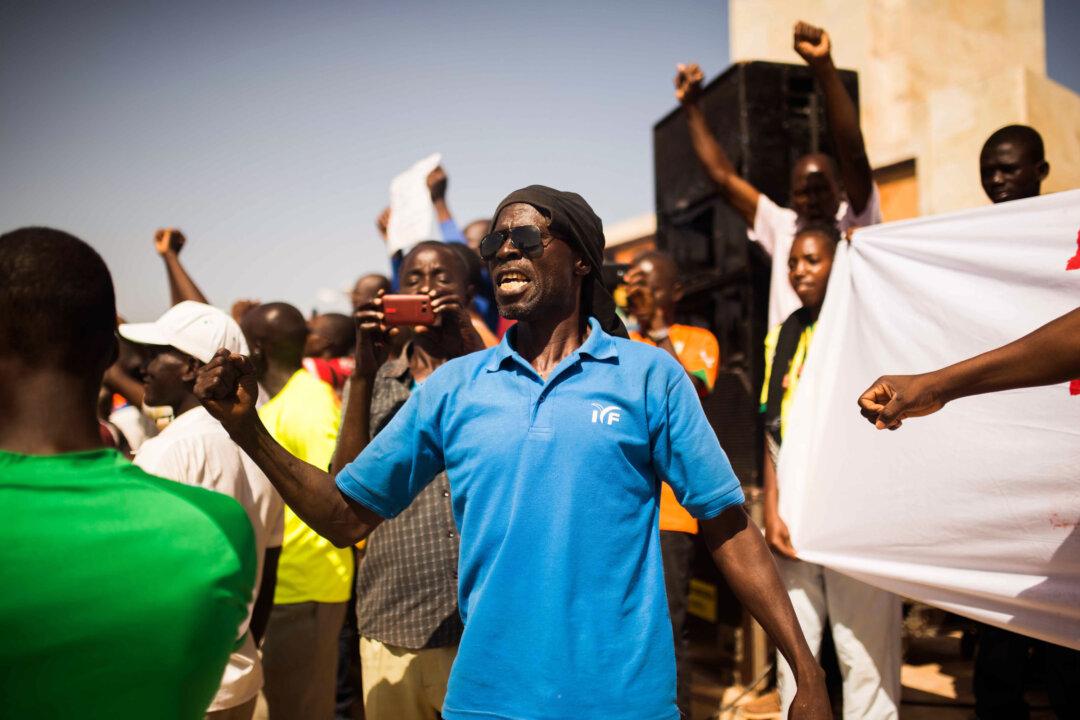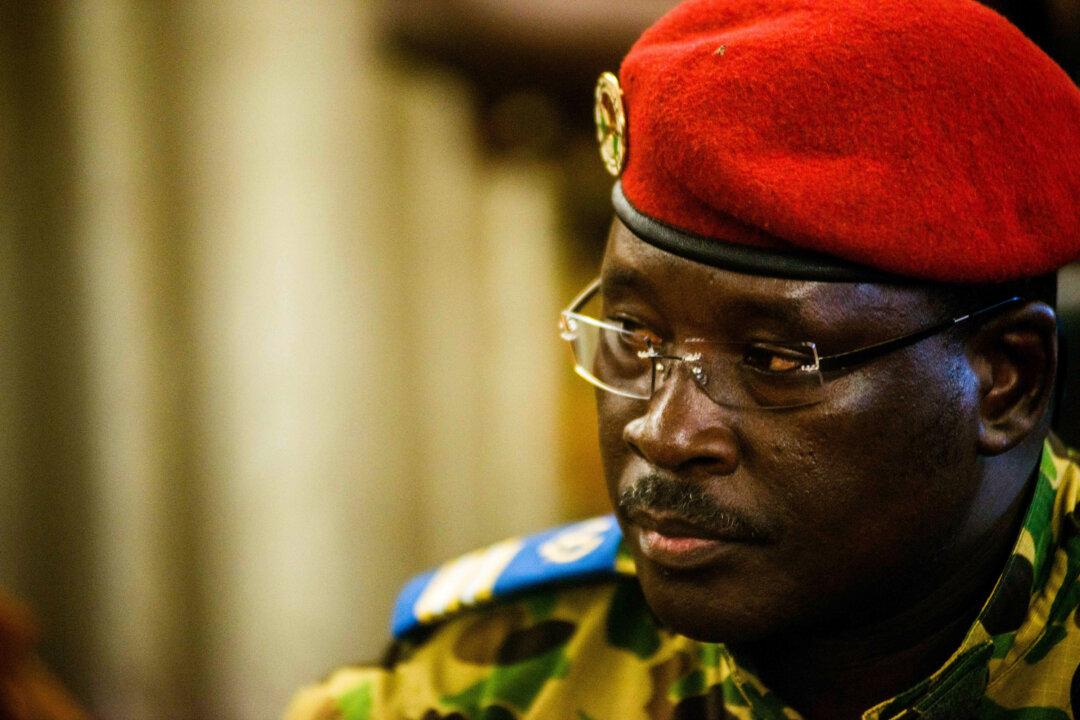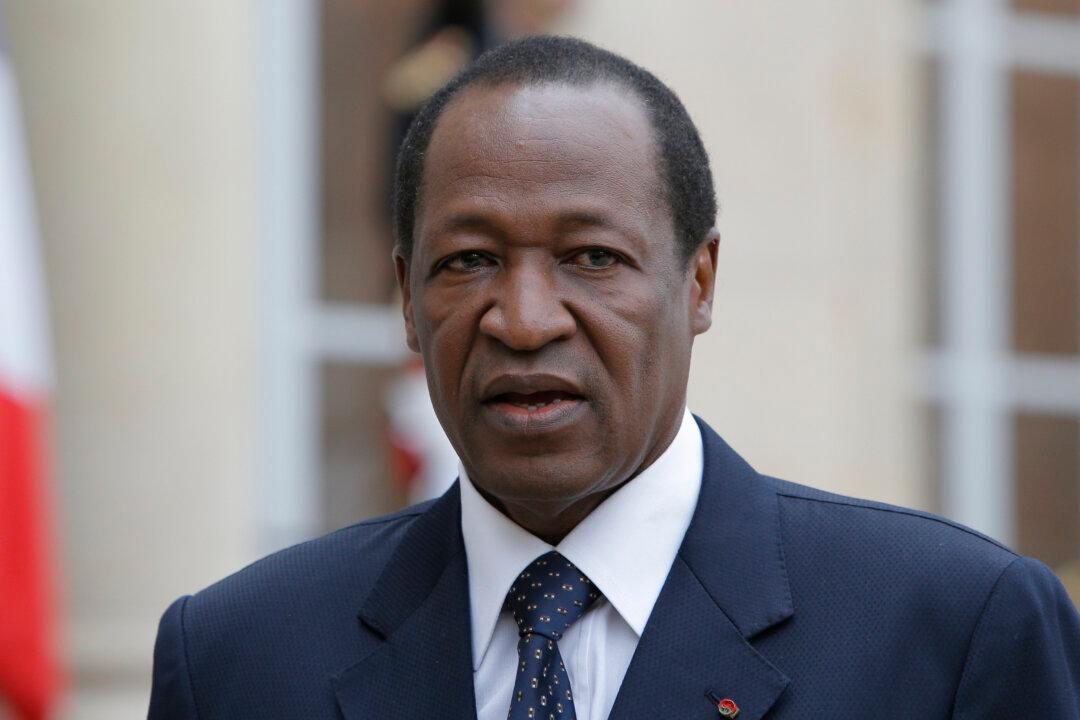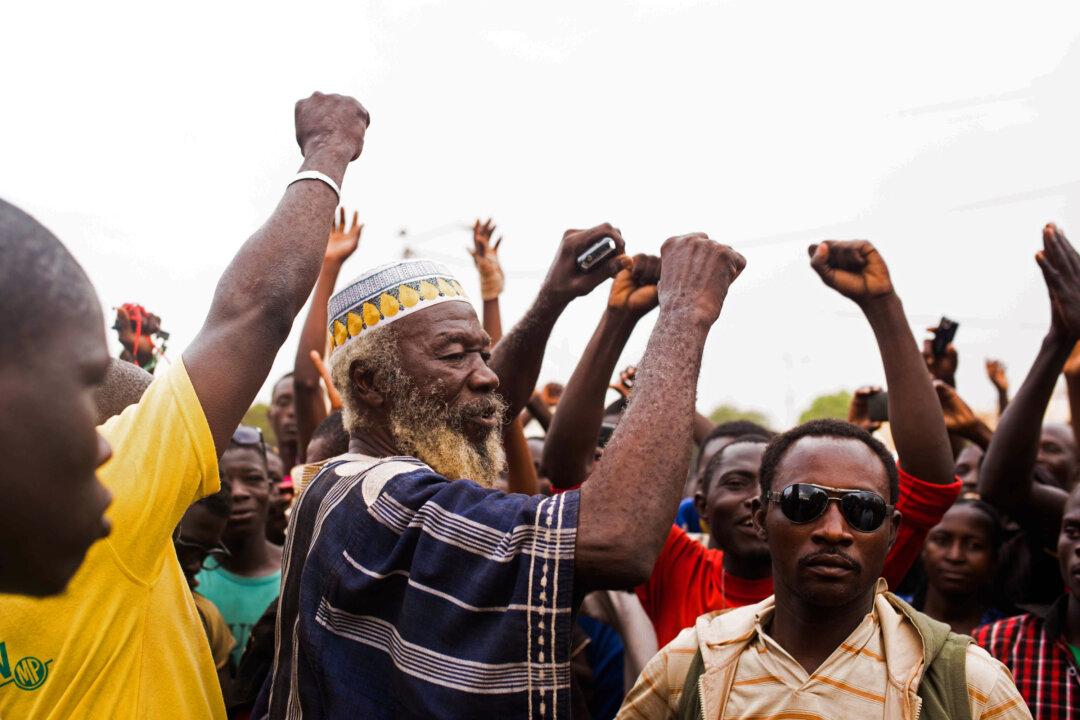OUAGADOUGOU, Burkina Faso—Gunfire erupted outside the headquarters of state television in Burkina Faso on Sunday as an opposition politician tried to announce she was in control of the West African country, days after the longtime president was forced out.
At least one person was killed in the melee, according to witnesses who spoke on condition of anonymity for fear of reprisals.
The developments underscored the uncertainty about who was in charge of Burkina Faso after president Blaise Compaore resigned Friday after 27 years in power and fled with his family to Ivory Coast amid violent protests seeking his ouster.
[aolvideo src=“http://pshared.5min.com/Scripts/PlayerSeed.js?sid=1759&width=480&height=300&playList=518493645&responsive=false”]
About 1,000 people had gathered Sunday afternoon at the Place de Nation in Burkina Faso’s capital to demand a civilian and democratic transition a day after the military announced that a lieutenant colonel would serve as interim leader until elections could be held.
Opposition politician Saran Sereme and her supporters then went to the headquarters of state television, where witnesses said she planned to declare herself the interim president.
Her efforts were blocked, however, when army Gen. Kwame Lougue showed up at the studios and entered without speaking to journalists who were waiting for the announcement.
In the aftermath of the gunfire, the military made a show of force by deploying armored vehicles along all of the avenues leading to the national television and radio station offices, witnesses said.
The bid for power already has caused confusion and chaos: Two different military officials had declared themselves in charge before the army confirmed Saturday that Lt. Col. Isaac Yacouba Zida was the transitional leader.
Even within the opposition, divisions were emerging. Some activists on Sunday called for an inclusive transition while others questioned the legitimacy of Zida’s rule.
[aolvideo src=“http://pshared.5min.com/Scripts/PlayerSeed.js?sid=1759&width=480&height=300&playList=518493228&responsive=false”]
Stanislas Benewinde Sankara, the leader of one opposition party, called for the dismissal of Zida’s government.
“The army cannot lead us. They have disqualified themselves,” said Sankara, who is of no relation to the late slain Burkinabe leader with the same name. “This is the result of a popular insurrection.”
The United States and the African Union also have condemned the power grab by the military.
“We call on the military to immediately transfer power to civilian authorities,” said State Department spokeswoman Jen Psaki. “We urge civilian leadership to be guided by the spirit of the constitution of Burkina Faso and to move immediately towards free and fair Presidential elections.”
African Union Chairperson Nkosazana Dlamini-Zuma called for a “civilian-led transition that would culminate, as soon as possible, in the holding of free, fair and transparent elections.”
“She stresses the duty and obligation of the defense and security forces to place themselves at the disposal of the civilian authorities who should lead the transition and to act in a republican spirit,” read a statement from her office.
Burkina Faso, though mired in poverty, had long been a country of stability in politically violatile West Africa. Compaore had served as a political mediator in a bloody post-election dispute in Ivory Coast.
However, frustration mounted as he sought legislative approval for a bill that would have enabled him to seek yet another term in office. Compaore, who first took power in 1987 after a coup that left visionary leader Thomas Sankara slain, had subsequently won four elections — all disputed by the political opposition.
From The Associated Press




